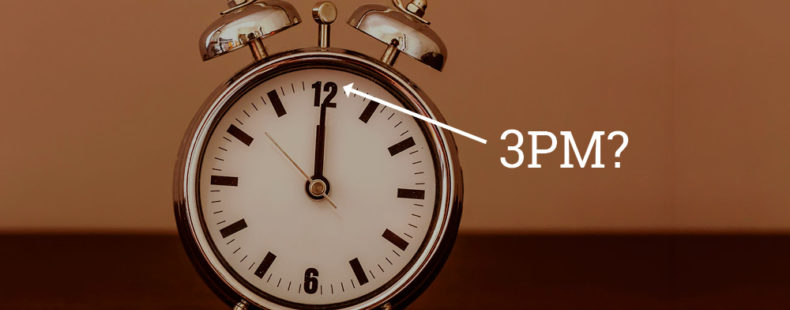To most, the word noon signifies a specific time of day–namely, 12:00 midday (aka “lunchtime”). But, surprisingly, the term noon wasn’t always shorthand for midday at 12:00; in fact, it used to refer to a different time of day altogether.
First, some history. Clocks and watches are relatively new inventions. Though some timekeeping devices, like sundials and water clocks, have been used for thousands of years, people historically did not tell time. The mechanical clock as we know it was invented in the 1200s and was more fully developed in the 1500s.
How did the Romans tell time?
In the Roman Empire about 2,000 years ago, the town bell told time for everyone in earshot, but the hours of the day were counted differently than today. (Back then, an hour meant “one twelfth of the day.”)
There were two cycles of twelve hours, as there are today, but rather than having the cycles begin from midnight, like we do, they started the day at sunrise. (Other languages, like Swahili, also number the hours in this fashion.)
They then divided their twelve-hour day into four periods of three hours each. So the town bell would toll every three hours to announce the beginning of a new period. The first hour, called Prime, rang at 6:00 a.m.; the third hour (Terce) rang at 9:00 a.m.; the sixth hour (Sext) rang at 12:00 p.m.; and the ninth hour (None) rang at 3:00 p.m.
The early Catholic church adopted these daily patterns in their rituals, and monks would recite prayers at the canonical hours of Terce, Sext, and None every day.
When did people start saying noon?
What does this have to do with noon? As church traditions changed, the canonical rituals of None began to happen earlier, closer to 12:00 pm. We still don’t know what specifically catalyzed the shift to 12:00, but by the mid-1200s noon came to mean “midday.”
In the 1300s, the earliest mechanical clocks showed a 24-hour dial, but by the 1500s, the 12-hour dial, starting at midnight, became standard. (The word afternoon came into common usage around this time as well.)
So the next time you show up late to a noon appointment, just tell them you thought they meant the Roman noon. Classic mistake.












